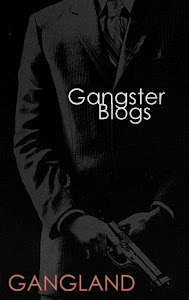A home-made firebomb allegedly was placed on the bus that day in early January by members of the Mara 18 street gang to pressure bus drivers to pay gang extortion fees. Nine people eventually died and many more were wounded by the impact of the blast.
Public transportation and bus drivers have become frequent targets in the rampant violence of Guatemala City, where organized crime rings, street gangs and drug cartels operate on a large scale but prosecution rates remain low.
In 2010, 130 bus drivers and 53 bus helpers who collect tolls were murdered, according to statistics released by the Guatemalan daily paper El Periódico. Drivers paid more than $1.5 million dollars in extortion money to organized crime in the same time period, according to police figures released earlier this year.
"There is a general impunity problem in Guatemala," Claudia Paz, Guatemala's attorney general, said through an interpreter. "We have a system of justice that has historically been weakened, that can't cope with violence and has permitted the number of deaths and homicides to rise."
On a national scale, the country has a homicide rate of more than 48 per 100,000 inhabitants. It's one of the highest homicide rates in the hemisphere— in the United States in 2009, the rate was 5 in 100,000, and in Mexico it was 14 per 100,000 people.
Many of those crimes occurs in Guatemala City, and the case of bus drivers reveals much about how gangs use public, violent crimes as a means to intimidate others --and cash in.
There is no single authorized public transportation system for buses in the city, so bus drivers often rent from a bus owner or buy their own vehicle and receive subsidies from the government to help provide transportation. This cash, and the money received from passengers, makes them targets.
Rubén Aquino is a former driver in Guatemala City who used to work for a company that began receiving threats from a gang through one of the company's bus helpers. The company began paying the gang $150 a month, but the harassment didn't stop for the drivers.
"I was attacked. They shot against the bus I used to drive. One day, they threatened me. If I didn’t pay them [$13] a day, they would kill me," Aquino said. "I was afraid and stopped circulating. There was too much to pay and it made no sense to work that way."
The Urban Bus Service Companies Association, which deals with industry concerns, has tried hiring private security for buses but found they could not afford to guard all the routes. There has also been a push to switch to new buses that have a prepaid system that allows payment without the exchange of cash. But for now, many of the old buses still roam the roads.
GANGWORLD CUSTOM SEARCH

Custom Search
Subscribe to:
Post Comments (Atom)












0 comments:
Post a Comment